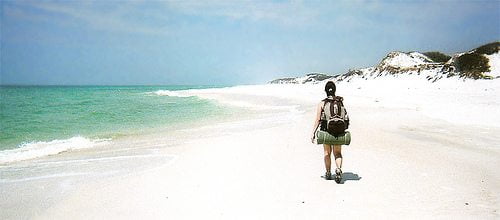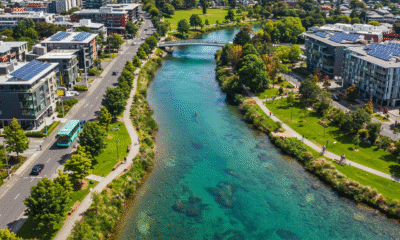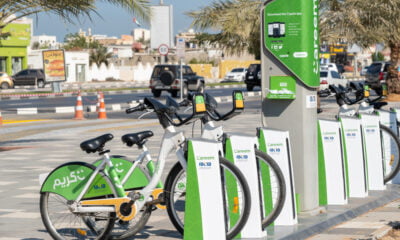

Features
Making Your Leisure Travel More Sustainable In 2016
While you may do your best to maintain a sustainable lifestyle at home, this often goes right out the window when travelling. The inconvenience of being away from home simply makes it more difficult to choose sustainably grown food, use energy efficient appliances, or take only environmentally friendly forms of transportation.
It’s an inconvenience to do many things, but that doesn’t mean your leisure travel needs to be an environmental black hole. Here are 3 steps you can take to minimize your footprint while you’re away from home.
Use Smart Appliances
One common energy sap when travelling is the inability to properly regulate your home’s temperature. In the winter, it’s tempting to leave the heat running to prevent frozen pipes as well as to keep you from coming home to a home as cold as a block of ice. But if you’re gone for a week, there’s no reason to waste energy holding your home at its normal temperature.
This is where smart appliances come in. By using devices like smart thermostats, you can adjust the temperature of your home and monitor it from your phone. There are many different devices like this, allowing you to turn lights on and off via smartphone that simulate someone being at home, control your sprinkler system, and track carbon dioxide levels or temperature changes that could indicate a fire. Smart devices are an amazing solution to travel’s otherwise wasteful energy practices.
Consider Food Waste
There are two different sides to the issue of food waste when travelling. First there are the items you toss before going away – things you know will go bad before you return. These items should be given to friends or neighbours rather than piled onto the already excessive amounts of food waste we see each year.
The other place you’ll encounter food waste while travelling is at your hotel. Hotels are known for overproducing in order to make sure that they always have enough food on hand for all guests since a hungry guest is not a happy guest.
As more guests express their concerns, however, hotels are working to reduce their food waste. When choosing a hotel to stay at, look into what initiatives your hotel is taking to minimize waste. Alternatively, look for places that don’t offer buffets or other open meals and instead focus on hotels with restaurants that prepare food to order.
Offset Your Carbon Footprint
The biggest environmental issue with travel by far is the impact of transportation, especially air travel. Calculations show that a single round trip coach ticket between New York and San Francisco produces 2 metric tons of carbon dioxide. This is approximately ten percent of the average American’s annual carbon footprint. Travel further or more than once a year and you’re looking at a substantial environmental impact from air travel alone.
One way to reduce your carbon footprint from travel is to buy carbon offsets from your airline or an outside source. Though calculations often vary regarding how much it costs to offset you environmental impact.
You can also make sustainable transit choices once you’ve arrived at your destination. Choose to bike or take public transit rather than using a car to get around. Many popular international destinations are bike friendly cities where you can rent bicycles for your family for transport and leisure.
Travel Light
At the end of the day, travelling while maintaining sustainable environmental practices is a constant balancing act, but for those committed to the importance of environmental activism the extra work is worth it. Do your research before you travel and choose the options that coincide best with your values. There’s no need to leave your ethics at home when you go on vacation.


 Environment12 months ago
Environment12 months agoAre Polymer Banknotes: an Eco-Friendly Trend or a Groundswell?

 Features11 months ago
Features11 months agoEco-Friendly Cryptocurrencies: Sustainable Investment Choices

 Features12 months ago
Features12 months agoEco-Friendly Crypto Traders Must Find the Right Exchange

 Energy11 months ago
Energy11 months agoThe Growing Role of Solar Panels in Ireland’s Energy Future




























